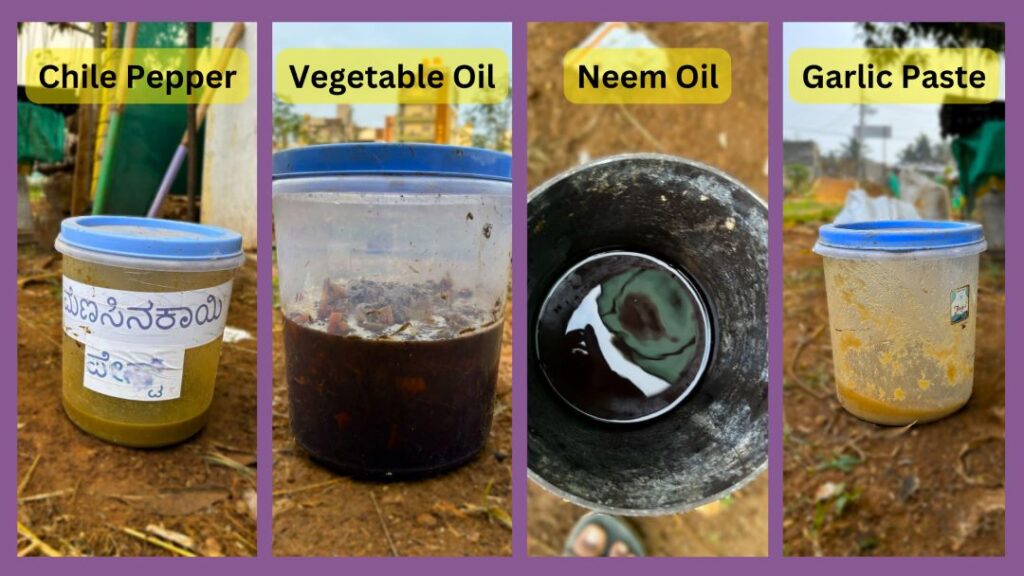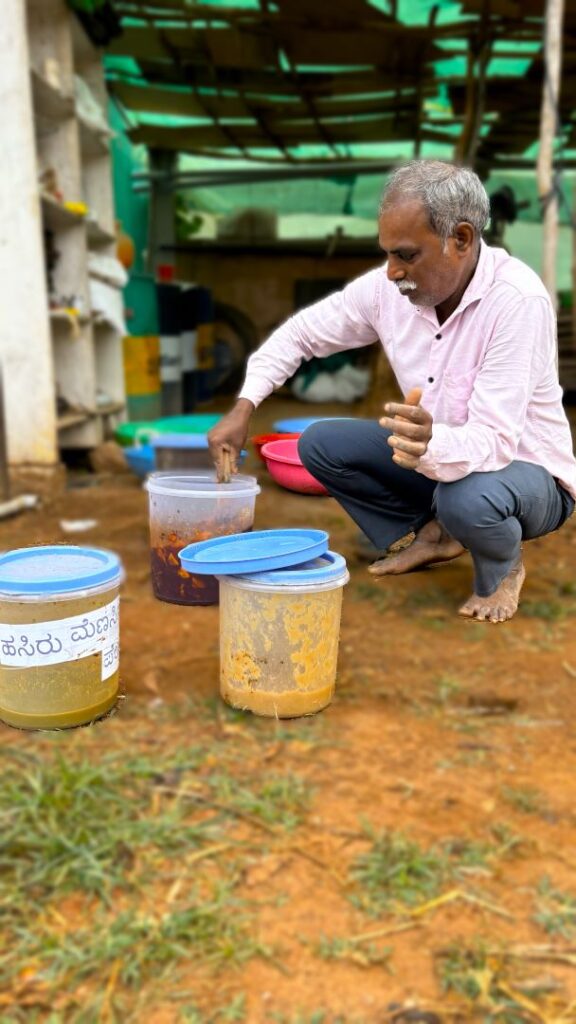Organic Pesticides
How to Make Them
A brief
Organic pesticides are pesticides that come from natural sources, such as plants, minerals, or microorganisms, or are made from organic soaps, oils, or alcohols. Organic pesticides are usually biodegradable, meaning they break down into harmless substances over time, and do not leave harmful residues on the crops or soil. Organic pesticides are also less likely to harm beneficial insects, such as bees, butterflies, or ladybugs, that help pollinate plants and control pests. Organic pesticides can be classified into different types, depending on their source and mode of action.
Some Common Types of Organic Pesticides:
Botanical insecticides
Mineral pesticides
Microbial pesticides
How to Make Organic Pesticides?
Organic pesticides can be bought from stores or online, but they can also be made at home, using simple ingredients and methods. Here are some examples of how to make organic pesticides, using common household items:

- Vegetable oil spray: This is a homemade insecticide that can be used to control aphids, mites, thrips, and other soft-bodied insects. To make it, mix one cup of vegetable oil with one tablespoon of mild soap, such as castile soap, in a quart of water. Shake well and spray the solution on the affected plants, covering both sides of the leaves. The oil will coat the insects and suffocate them, while the soap will help the oil stick to the plant. Repeat the application every week or as needed. Store the solution in a cool and dark place.
- Neem oil spray: This is a natural insecticide that can be used to control a wide range of pests, such as caterpillars, beetles, leafhoppers, and scale insects. To make it, mix one teaspoon of neem oil with one teaspoon of mild soap, such as castile soap, in a quart of water. Shake well and spray the solution on the affected plants, covering both sides of the leaves. The neem oil will disrupt the hormones, feeding, and reproduction of the insects, causing them to die or stop reproducing. Repeat the application every week or as needed. Store the solution in a cool and dark place.
- Garlic spray: This is a natural repellent that can be used to deter pests, such as aphids, cabbage worms, and flea beetles. To make it, peel and chop one bulb of garlic and boil it in two cups of water for 15 minutes. Strain the liquid and let it cool. Add one teaspoon of mild soap, such as castile soap, and one quart of water. Shake well and spray the solution on the affected plants, covering both sides of the leaves. The garlic will emit a strong odor that will repel the pests. Repeat the application every few days or as needed. Store the solution in a cool and dark place.
- Chile pepper spray: This is another natural repellent that can be used to deter pests, such as aphids, spider mites, and leaf miners. To make it, chop one cup of hot peppers, such as jalapeños or habaneros, and boil them in two cups of water for 15 minutes. Strain the liquid and let it cool. Add one teaspoon of mild soap, such as castile soap, and one quart of water. Shake well and spray the solution on the affected plants, covering both sides of the leaves. The chile pepper will emit a spicy scent and taste that will repel the pests. Repeat the application every few days or as needed. Store the solution in a cool and dark place.
- Soap spray: This is another homemade insecticide that can be used to control aphids, mealybugs, whiteflies, and other soft-bodied insects. To make it, mix one teaspoon of mild soap, such as castile soap, in a quart of water. Spray the solution on the affected plants, covering both sides of the leaves. The soap will dissolve the protective coating of the insects and dehydrate them. Repeat the application every few days or as needed. Store the solution in a cool and dark place.
Summary
Organic pesticides are pesticides that are made from natural sources or self-made mixtures that are safer and more eco-friendly than synthetic pesticides.
However, organic pesticides also have some limitations, such as being less effective, less stable, or less selective than synthetic pesticides, so they need to be used with care and knowledge.
Organic pesticides are not a magic bullet, but a tool that can help reduce the reliance on synthetic pesticides and promote a healthier and greener way of farming.
HAPPY FARMING!

